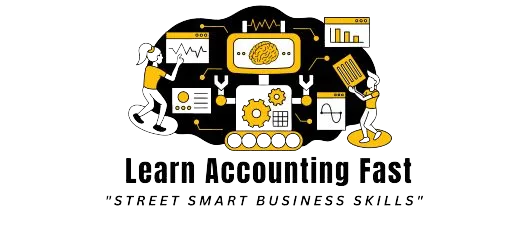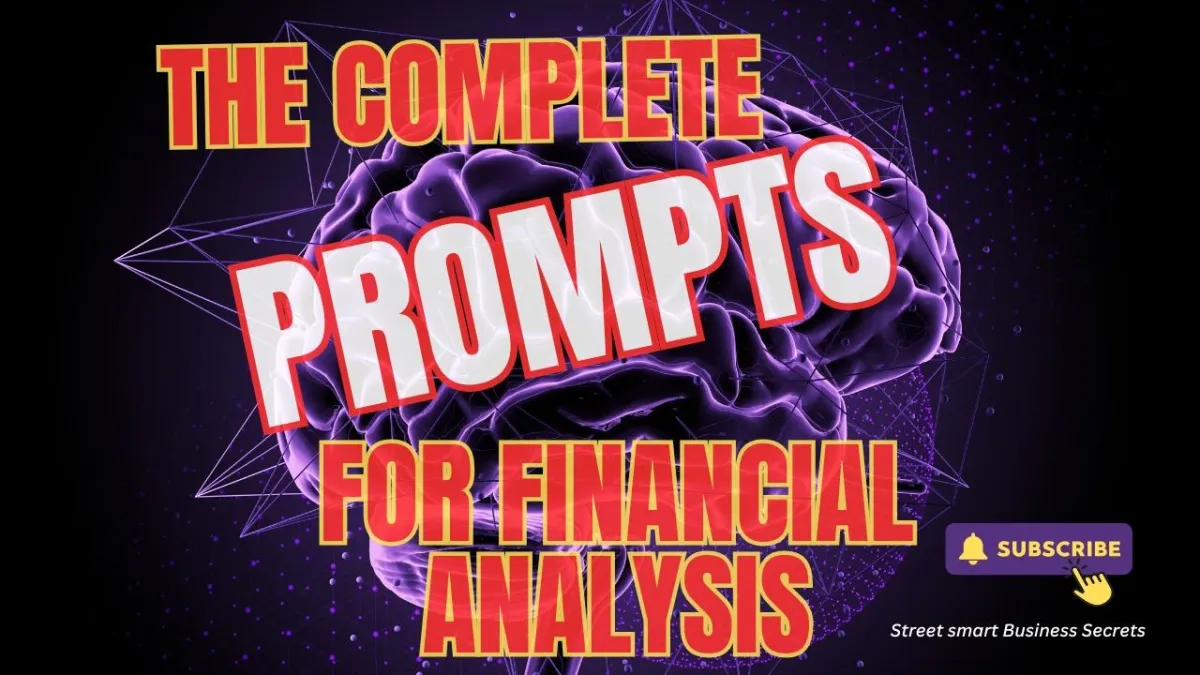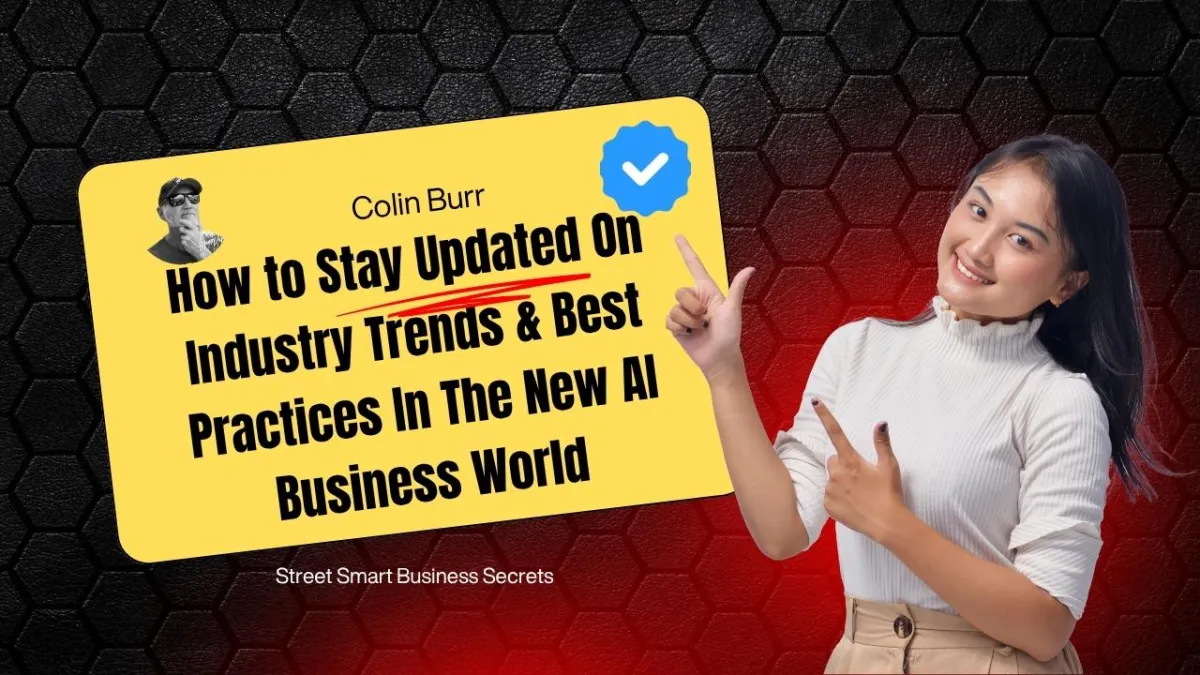Use AI Like a Pro
"Smart Business Questions, Smarter Money”
Discover the smart, little-known tricks that top AI-savvy businesses use to get laser-accurate answers to money questions—AI in Business without being a tech genius.
Let’s get real—Google doesn’t cut it anymore when it comes to smart money decisions.
If you’ve ever typed “how much should I pay myself?” or “is this a tax write-off?” into Google and ended up more confused, you’re not alone. Today’s smartest business minds aren’t using search engines.
They’re talking to AI. But here’s the kicker:
It’s not just what you ask AI… it’s how you ask it. This guide will show you how to ask like a pro—the way elite businesses, CEOs, and financial experts do—using AI business tools and AI financial assistants for smarter decision-making. Whether you’re a business student, side hustler, or building a million-dollar brand, this post will give you real-deal strategies, not fluff.
AI Can Confuse You… If You Don’t Know the “Language”
The #1 mistake people make?
They treat ChatGPT or Claude like a search engine. Big mistake.
Search engines guess what you want. AI responds to what you say.
So if you ask a vague or poorly framed financial question, you’ll either get an answer that’s too basic, too random—or just plain wrong.
That’s why learning how to ask financial questions with AI is a game-changer.
Worse? You might get “hallucinated” numbers—made-up data that sounds legit but isn’t.
Elite businesses know how to guide the AI’s brain. That’s the difference.
Let’s say you’re running a small coffee van.
You could ask AI, “Is my business profitable?”
But that’s too vague. Instead, ask, “If I sell 100 coffees a day at $5 each, and my daily costs are $200, what’s my net profit after tax?”
Now the AI can do the math—and even suggest ways to improve your profit.
Here’s another one:
Imagine you're thinking of buying a second van. Don’t just ask, “Should I expand?” Ask, “Based on my current monthly profit of $4,000 and fixed costs of $2,500, how long would it take to recover the $15,000 cost of a second van, assuming similar revenue?”
This way, the AI can give you a smart forecast, just like a finance coach would.
Turn AI into Your Financial Mentor (Without Paying a Cent)
Big businesses don’t ask AI “how much does a business make?” They ask: “Give me a 12-month cash flow estimate for a service business earning $15K per month with 30% overheads and 15% tax rate.” That’s the secret:
Specific, structured prompts get powerful results.
Use AI for:
AI financial analysis
Estimating cash flow
Tax planning strategies for small businesses
Business tax deductions and credits
Profit margins by product or service
Breaking down balance sheets
But don’t stop there.
Ask AI how to ask better questions. That’s what the pros do. Seriously.
These are the best ChatGPT prompts for finance that help uncover hidden insights and drive real growth.
For example:
Imagine you just started an online t-shirt store.
Most people might ask, "How can I make more sales?" But a smarter question is,
"If I currently sell 200 shirts a month at $25 each, with $10 cost per shirt, and I spend $500 on ads, what’s my net monthly profit and how could I use AI to test ad copy to increase conversions?"
Now you’re working with real numbers, and the AI can give you practical, profitable advice.
Another example:
Say you're thinking of hiring your first employee. Don't just ask, "Should I hire someone?"
Ask, "If I earn $7,000/month and spend $2,000 on operations, can I afford a part-time employee at $25/hour for 20 hours/week without going into the red?"
This makes the AI think like a business advisor—not a chatbot.
Use These 5 Secret Prompts That the Big Dogs Use
Here are 5 advanced prompts the average person doesn’t know—but big players use to build AI into their financial toolbox:
1. “Act as a CFO…”
“Act as a CFO for a retail business with seasonal income. Help me plan cash flow for low-sales months using asset leverage in business.
” Why: This triggers the AI to behave like a seasoned financial strategist, not a search engine—giving you cash flow management tips that help you make confident decisions.
For example, say you run a small car detailing business.
If you simply ask AI, "How can I grow my business?" you might get general advice like "get more customers" or "market online."
But if you ask, "If I earn $100 per car and do 20 cars per week, with $400 in weekly costs, how much should I reinvest to grow by 30% in the next 3 months?”
Now AI gives you a plan based on your actual numbers.
Another example:
You're a freelance graphic designer earning $3,000 a month.
Instead of asking, "How do I make more money?"
Ask, "If I want to save $10,000 this year and my current income is $3,000/month with $1,500 in living costs, how many extra design projects at $500 each do I need per month, and what should I charge to reach my goal faster?"
Now AI can give you a game plan, not just generic tips.
2. “Break this down like I’m 12…”
“Explain EBITDA to me like I’m 12 years old, using an ice cream shop as an example.”
Why: Simplicity = clarity. And clarity = smarter decisions—especially when you're building financial literacy for business owners.
Let’s look at two simple examples:
Imagine you run a weekend lemonade stand. You earn $200 a day, and your ingredients and supplies cost you $80.
You could ask AI, “Am I making money?”—but that’s vague. Instead, ask,
“If I make $200 a day and spend $80, what’s my profit after taking out $20 for savings and $10 for marketing?”
Now the AI can give you a clearer picture—and maybe even show you how to boost that profit.
Let’s say you tutor kids after school and make $500 a week.
You’re thinking of buying a whiteboard and a tablet for your sessions.
Don’t just ask AI, “Should I buy new tools?”
Ask, “If I spend $ 300 on a whiteboard and $400 on a tablet, how many extra tutoring sessions at $50 each would I need to break even?”
That way, the AI can help you make smarter financial choices based on real data.
3. “What questions am I not asking?”
“I’m a new business owner. Based on my income and expenses, what financial blind spots should I be aware of?”
Why: This unlocks insights you didn’t know you needed.
Let’s look at two everyday examples to show how powerful this question can be:
You’re running a small food truck and doing okay, but feel like you’re not saving enough.
Ask AI, “What costs might I be missing that most food truck owners overlook?”
The AI could point out things like fuel price fluctuations, seasonal dips in traffic, or even permit renewals that sneak up and drain your cash flow.
You're selling handmade products online and ask AI, “What hidden financial risks should I watch out for if my main supplier goes out of business?”
The AI might highlight overlooked details like supplier dependency, lead time issues, or shipping cost spikes things you hadn’t considered but could save you from disaster.
4. “Compare my scenario with best-practice benchmarks…”
“Compare my monthly expenses for a digital agency with industry standards. Highlight red flags.”
Why: Context is king. Benchmarks show you if you’re crushing it—or bleeding cash. This is where reading financial statements for business growth becomes a superpower.
Let’s make it super simple:
Imagine you run a dog grooming service.
You ask AI, “Are my expenses too high?”
Instead, ask, “If I make $4,000 a month and spend $2,800 on supplies, rent, and staff, how does that compare to what other grooming businesses spend?”
Now, AI can give you a benchmark and let you know if you’re spending too much or doing great.
Say you’re managing a small e-commerce store.
You ask AI, “Am I making enough profit?” Better to say, “If my store brings in $10,000/month with $6,500 in costs, is my profit margin higher or lower than similar online stores in my niche?”
This gives you a real-world comparison—so you can improve, not just guess.
5. “Create a checklist…”
“Create a financial literacy checklist for business owners starting with $5K capital. Keep it under 10 steps.”
Why: Step-by-step wins over scattered advice.
AI is brilliant at checklists if you ask the right way.
These checklists help with balancing growth and profitability—something many startups miss.
Let’s look at two simple examples:
Say you just started a mobile car wash. You ask AI, "What steps should I take to make sure I don’t run out of money?"
AI could respond with a checklist: track daily income, list fixed weekly costs, estimate monthly fuel use, and set aside money for surprise expenses.
Suddenly, you've got a clear plan.
Imagine you opened a small smoothie bar. You’re overwhelmed and ask AI, "How do I stay on top of my finances each week?"
The AI might give you a weekly checklist: count all sales, list ingredient costs, check staff hours, and compare profit to goals. With this, you can stay ahead without the stress.
Train Your Brain to Train the AI
AI isn’t here to replace accountants (yet). But it can become your secret financial co-pilot—if you learn how to speak its language.
Start small. Test prompts.
Then refine them. Save the good ones. The future belongs to the ones who ask better questions.
Here’s what that looks like in real life:
Let’s say you own a local bakery.
If you ask AI, “How do I increase sales?”, it might give you broad suggestions. But if you ask, “If I sell 100 cupcakes a day at $4 each and want to grow sales by 20%, what pricing or promotion strategy would help based on customer buying patterns?”
The AI can guide you with real tactics, not guesses.
Imagine you’re managing a lawn care business.
Don’t ask, “Am I charging enough?”
Instead, ask, “If I’m charging $50 per job and doing 25 jobs per week with $500 in weekly costs, what should I charge to increase profit by 30% over the next quarter without losing customers?”
That’s asking like a pro—and that’s how the future is won.
Be the greatest you can be…
Join us, click the link below for short, sharp, simple video courses that give you confidence and street-smart business skills to simplify accounting and focus on growing your business to succeed.
Latest Posts
Master Prompts For
Financial Analysis
The Complete Small Business Guide to Financial Analysis: Formulas, Examples, and Tips.These are super-powerful questions you can ask an AI to help..
How To Solve Any Business
Problem With Ai
AI can help you solve all of these faster, smarter, and more affordably, if you know how. This guide will show you exactly how to do that.........
The Secret to Stress - Free Business Finances Envelope Budgeting
Welcome to the Envelope Budgeting Method the street-smart way to take control of your business cash without a finance degree or expensive software.
How to Stay Updated on AI Business Trends and Best Practices (2025 Guide)
Top Smart Ways to Stay Ahead
Here are the best ways to stay updated on AI trends and business practices....
What are the Best Ways to Solve Business Problems?
Structured problem-solving is like having a detailed map or GPS when you're lost. It guides you step-by-step, clearly showing the path to your destination. Here's how it helps...
Use AI Like a Pro
Smart Business Questions
Discover the smart, little-known tricks that top AI-savvy businesses use to get laser-accurate answers to money questions—AI in Business without being a tech genius.
Disclaimer: The content shared on this blog and in these videos is for informational and educational purposes only. Despite my 30 years of experience as a business owner, I am not a certified financial advisor, accountant, or legal professional. The insights and tips shared are based on personal experiences and should not be taken as professional financial or legal advice. For financial, legal, or professional advice, please consult with a certified professional in the respective field. I disclaim any liability or responsibility for actions taken based on any information found in this blog or these videos.
Copyright Learn Accounting Fast - All Rights Reserved 2025













Facebook
Instagram
X
LinkedIn
Youtube